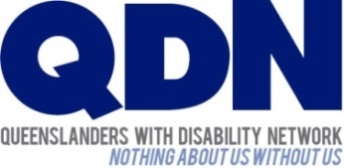Establishing and facilitating a peer support network is a big job, and it can be helpful to gather resources to assist. Community organisations can be a particularly helpful resource.
Community organisations are often:
- Well-connected in the community
- Driven by a mission that includes providing assistance in one way or another
- Skilled at finding and accessing resources
- Skilled at partnering with others to get work done
- Used to doing a lot, with little
- Not for profit
How to find local community organisations:
- Search your local service directories for the groups available in your community
- Ask at your local library or council office for directories of organisations in your community
- Ask your members and your friends what organisations they know of, or are members of
- Check your local newspaper and Facebook groups for leads
- List any organisations that you and your members receive services from, or involved with in any way
- Search online databases such as My Community Directory
What assistance could be available?
Community organisations often require and have similar resources and may be willing to share these for a good cause. Check out “Useful resources for group operation“, to help you know what to ask for, and include items from that list.
What community organisations might have to offer:
- Human resources – may be willing to donate the time of a support person, mentor, facilitation trainer, or marketer.
- Venue – often have rooms that are fully accessible and easy for people to get to.
- Catering – may be willing to donate some food and drinks, have volunteers willing to prepare food, or know where to ask for catering donations. Their meeting rooms will likely have a fridge, tea and coffee making facilities and crockery and cutlery.
- Materials – may have such resources as butcher’s paper and markers for group conversations, paper and pens or laptops for note takers, and specific resources for group activities – and may be willing to donate these to you.
- Transport/parking – may have or know how to access vehicles and drivers to help transport people.
- Marketing materials – may donate materials, and help you with access to word processing and printer and paper. They may have volunteers or staff who can assist with marketing and may be willing to help market the network through their own marketing channels.
- Communication – may help with access to a telephone, a computer and the internet
- Insurance – will have insurances, and may be willing to have your network covered by their insurances e.g. volunteer’s insurance or public liability insurance.
- Training and development – may offer or know how to find advice and training for you and for group members to support individual and group development.
- Celebrations – may be willing to help you celebrate achievements, and may donate or help you seek out resources to do this – venues, catering, invitations etc.
When talking with community organisations, or searching their websites and social media, be sure to stay alert to anything that comes up that you haven’t considered that may assist your network, and in conversation, always ask for their ideas too!
How to request assistance
Remember your value proposition! Think about which organisations from your list might have similar interests to your group e.g. your local sporting club might have an inclusion officer, one of your members may be in Rotary, – think creatively!
When you have thought about who you will approach, do your research – what is the organisation’s mission, what kind of work does it do and with whom, who is the right person in the organisation to approach, what assistance could the organisation offer, what benefit could the organisation get from assisting the network?
Next, request a meeting, write a letter or make a phone call. Be polite, enthusiastic, and show you have done your research on the organisation and value the time the organisation is spending with you. Be sure to speak enthusiastically about your value proposition – what benefit the network can have for its members and the wider community. Also speak about what benefit the network could provide for the organisation – it might help them fulfil their mission, or they may be able to refer people to the network, or they may even like to be a sponsor and put their logo on your marketing materials.
When asking for assistance, ask for something specific -see the list above. Regardless of the answer, thank the organisation for their time, and if they have made an offer, follow up with a thank you and a note outlining their offer and arrange for receiving the offer.
Finally, keep the organisation informed of the network’s achievements – perhaps an occasional newsletter or thank you note noting the number of meetings and members, and/or how their assistance was appreciated and enjoyed.
Where you can find more information
See Quick Guide: Understanding what resources will be needed for the group to operate.
See Quick Guide Thinking about the value proposition that a group would offer
See Quick Guide Who you want the peer network to be for
Useful web links:
My Community Directory could be very useful:
https://www.mycommunitydirectory.com.au/
The Centre of Excellence for Peer Support (mental health) has some great resources for peer support networks:
http://www.peersupportvic.org/index.php/2014-12-15-22-42-49/2014-12-16-02-22-27/Resources/
Co-authored by Queenslanders with Disability (QDN)

The information on this page is also available as a downloadable Quick Guide, by clicking below. There are PDF and word versions.
